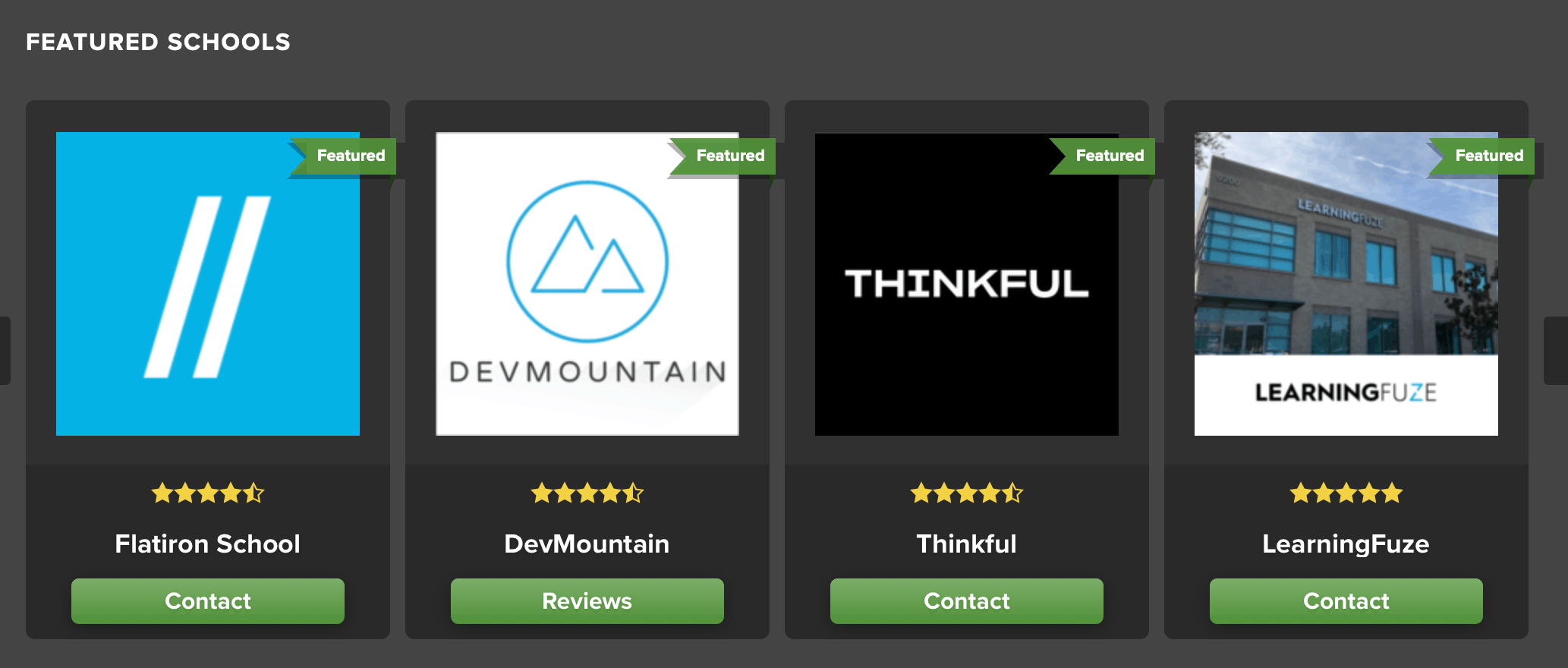Coding Boot Camps have been around for quite a few years in the US and have enjoyed a huge amount of hype as the next big thing and offering an alternative to a degree and a fast track into the world of Silicon Valley (or local equivalent).
The idea is of course based on the military boot camp concept of intensive training to achieve a level of basic competence. Essentially, these education boot camps have a strong focus on teaching coding – and some even offer credit to towards degree courses.
Coding boot camps started off independently as yet another attempt to disrupt higher education – the argument was that learning to code was directly vocationally relevant and better than any degree course and a fast track to a lucrative career in the tech industry. With this kind of offer then who needs to study for three or more years for a degree and why bother with universities at all?
But, as Goldie Blumenstyk reports in this recent Chronicle piece, while most of these boot camp providers continue to operate outside higher education, there are more partnerships with universities now being established:
If colleges do indeed continue to embrace this trend, they will be entering a sector where reliable data on student outcomes is still decidedly hard to come by — and hype often overtakes reality. Six months ago, 2U spent $750-million to buy Trilogy Education, which specializes in developing boot camps in partnership with colleges. Trilogy now has 49 university partners.
Already, companies like Fullstack Education and Software Guild work side-by-side with colleges, while the Flatiron School, fresh off its successful, credit-bearing summer program at Yale University, is reportedly now looking to develop similar programs at other institutions as well. An even more interesting model can be found at Make School in San Francisco, which offers tech skills and a bachelor’s degree in conjunction with Dominican University.

So, a bit like the MOOC hype, things have developed rather quickly with some major shifts from disruptive and edgy operations into embracing the mainstream.
However, it’s all still rather messy in many respects with high course fees being charged for programmes with little or no quality assurance, questionable teachers, largely unverified academic standards and extremely dubious statistics about job destinations. But there is still plenty of hype surrounding boot camps.
The hype makes it even difficult to estimate the size of the boot-camp sector. One of the few entities that tracks boot-camp industry is a company called Course Report, which produces an annual document predicting the number of graduates that coding boot camps are likely to produce in future years. But when you look back at their predictions compared to what they later report you find that their estimates for market growth were consistently inflated. For example, in its 2017 report, it predicted there would be 22,949 coding school graduates in that year. (Yes, it was the precise.) But the 2019 report, which looks back on historical trends, reports 16,190 actual graduates. In 2018 it predicted 20,314; actual numbers for that year, as reported a year later, were 15,429.
Outcomes data on boot-camp students are equally difficult to find. A fledgling membership organization called Council on Integrity in Results Reporting has developed reporting standards for its members, but fewer than two-dozen schools participate, and its publicly available data is, in the words of one lender in the industry, hard to find and “kind of wonky.”
The numbers then are still pretty big and, as the Course Report list shows, there are now plenty of university boot camp partnerships out there, at least in the US.
In the US there are quite a few different companies competing for market share but the phenomenon has really yet to take off in the UK although summer 2019 saw the first two boot camps launched, first at the University of Birmingham and then at Manchester, both in partnership with Trilogy.

As the Birmingham press release notes, there is a demand for this kind of provision in the UK:
The University of Birmingham Coding Bootcamp is a substantive non-degree course teaching full stack web development that successfully prepares adult learners and working professionals for careers in Coding/Web Development and represents one of a range of programmes at the University set up to respond to the developing needs of the modern workforce.
“As the leading higher education institution in the region, we want to ensure our city’s existing workforce has a pathway into the lucrative and fulfilling careers made possible by the growing technology sector. This is a fantastic opportunity for personal professional development. The flexible part-time format of the new University of Birmingham Coding Boot Camp makes it possible for people to diversify and develop the skills needed for alternate technical careers.”
Startup businesses in Birmingham are thriving thanks to local networks like the “Silicon Canal” and a strong flow of graduates from the universities surrounding the area. Birmingham boasts more start-ups than any other city in the UK outside of London with 18,590 new companies launched in 2018 alone. The city’s sustained tech growth means that employers are hungry for job-ready tech talent with over 60% of local startups reporting difficulty finding qualified talent.
I must admit, I hadn’t heard of ’Silicon Canal’ before but can understand that there might be a market for some of this kind of provision. Will boot camps take off in the same way as they have in the US? Time will tell but it is looking like partnerships between universities and the big existing providers from North America are likely to be leading the way.












